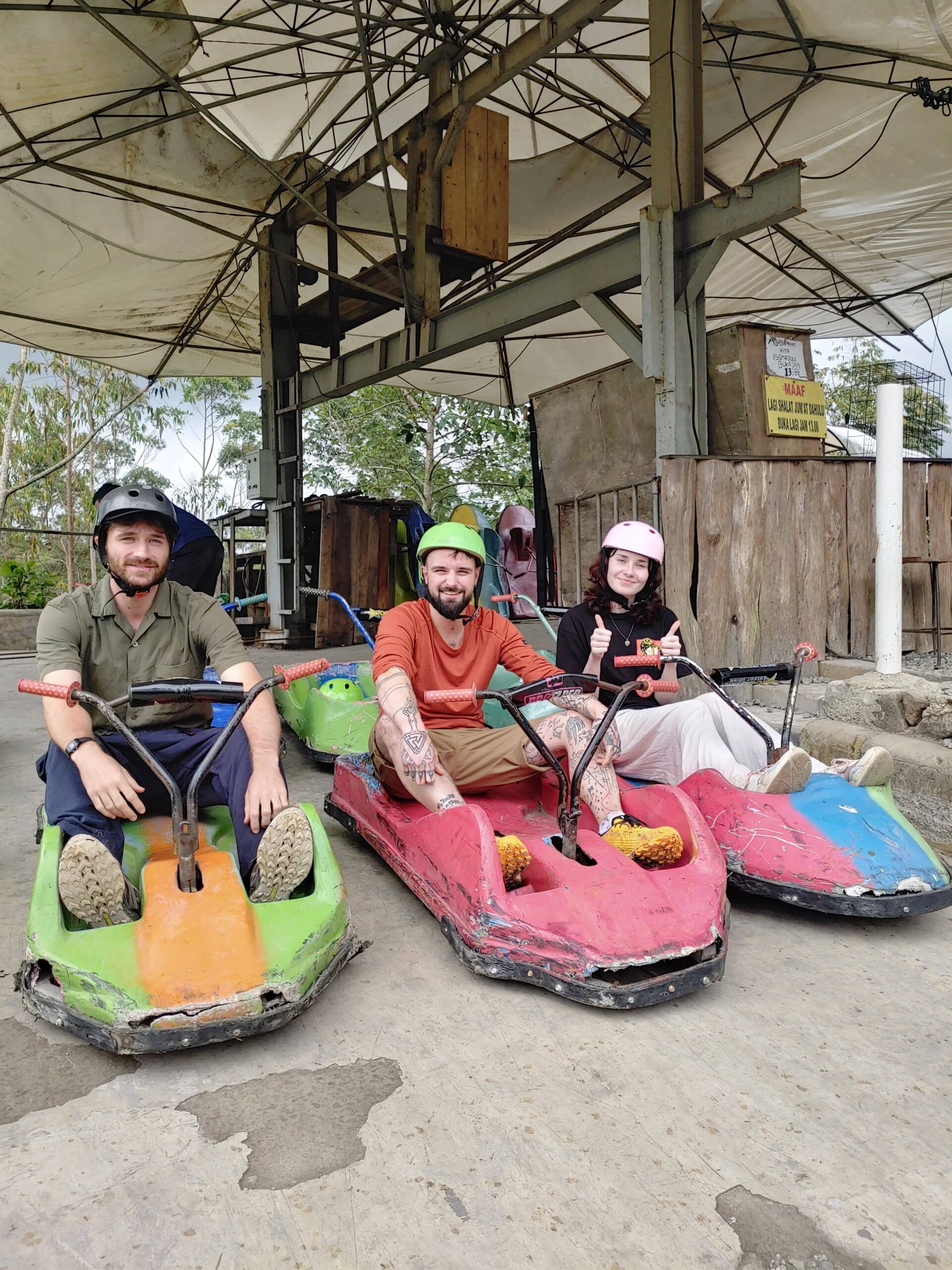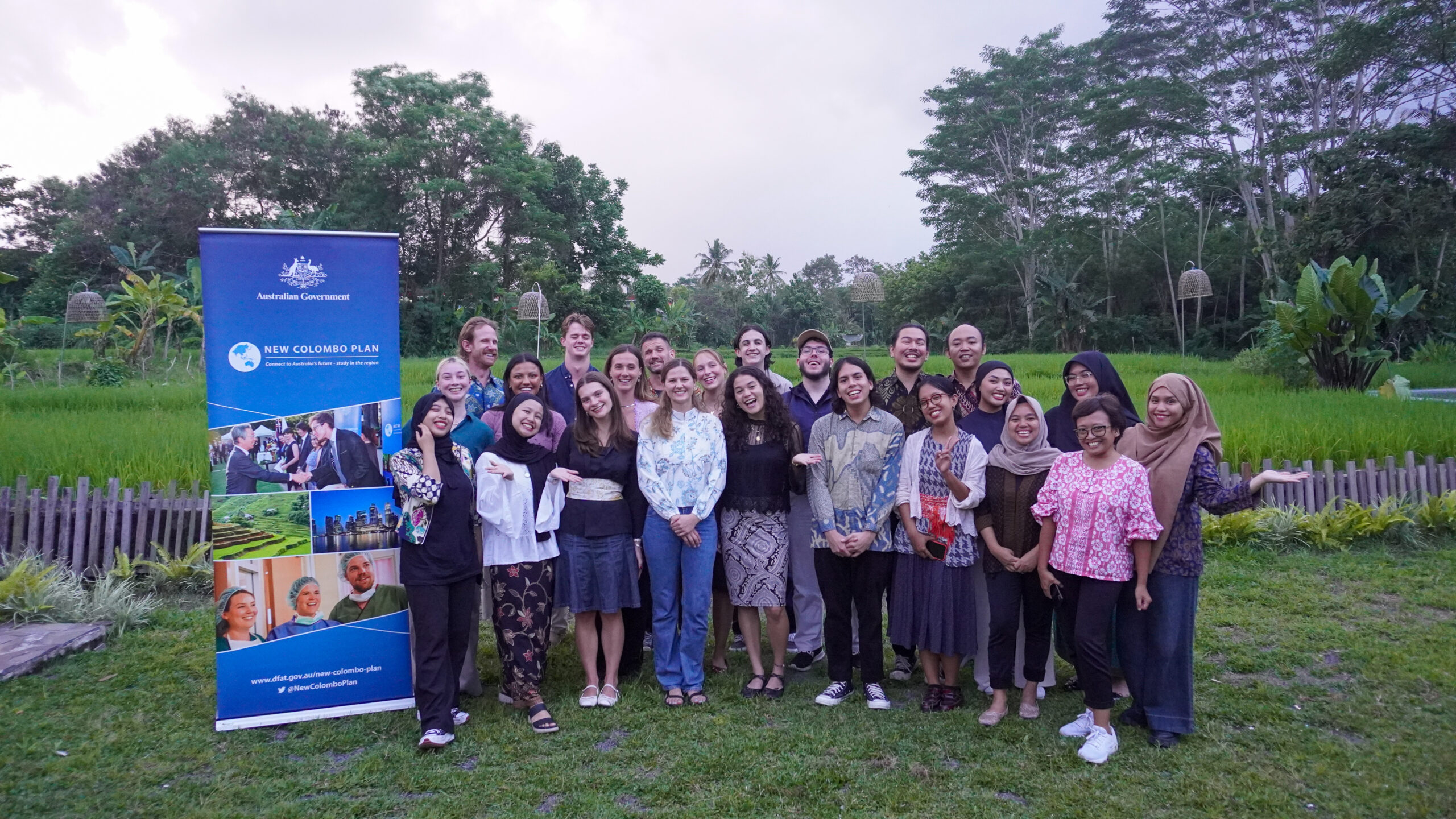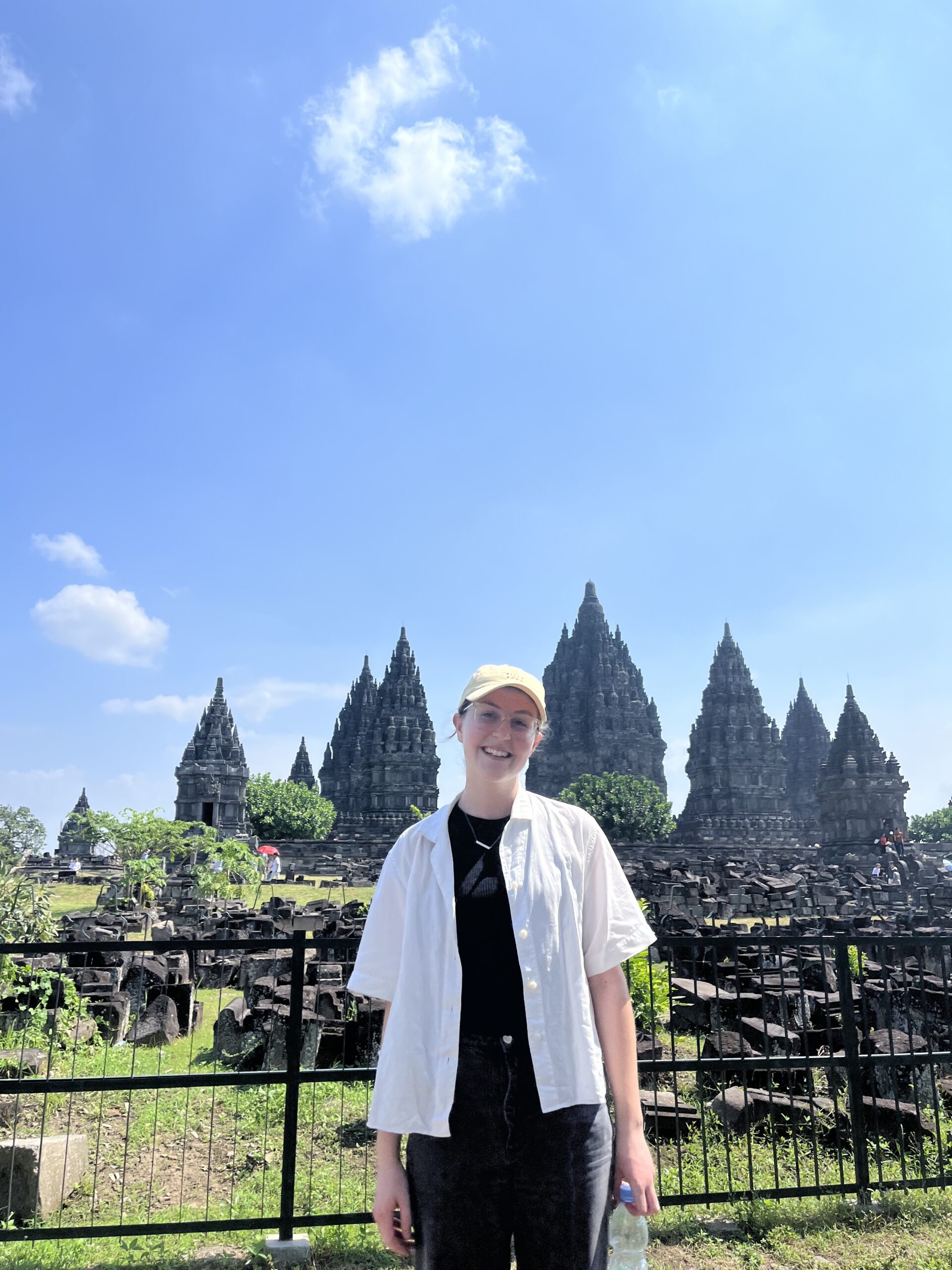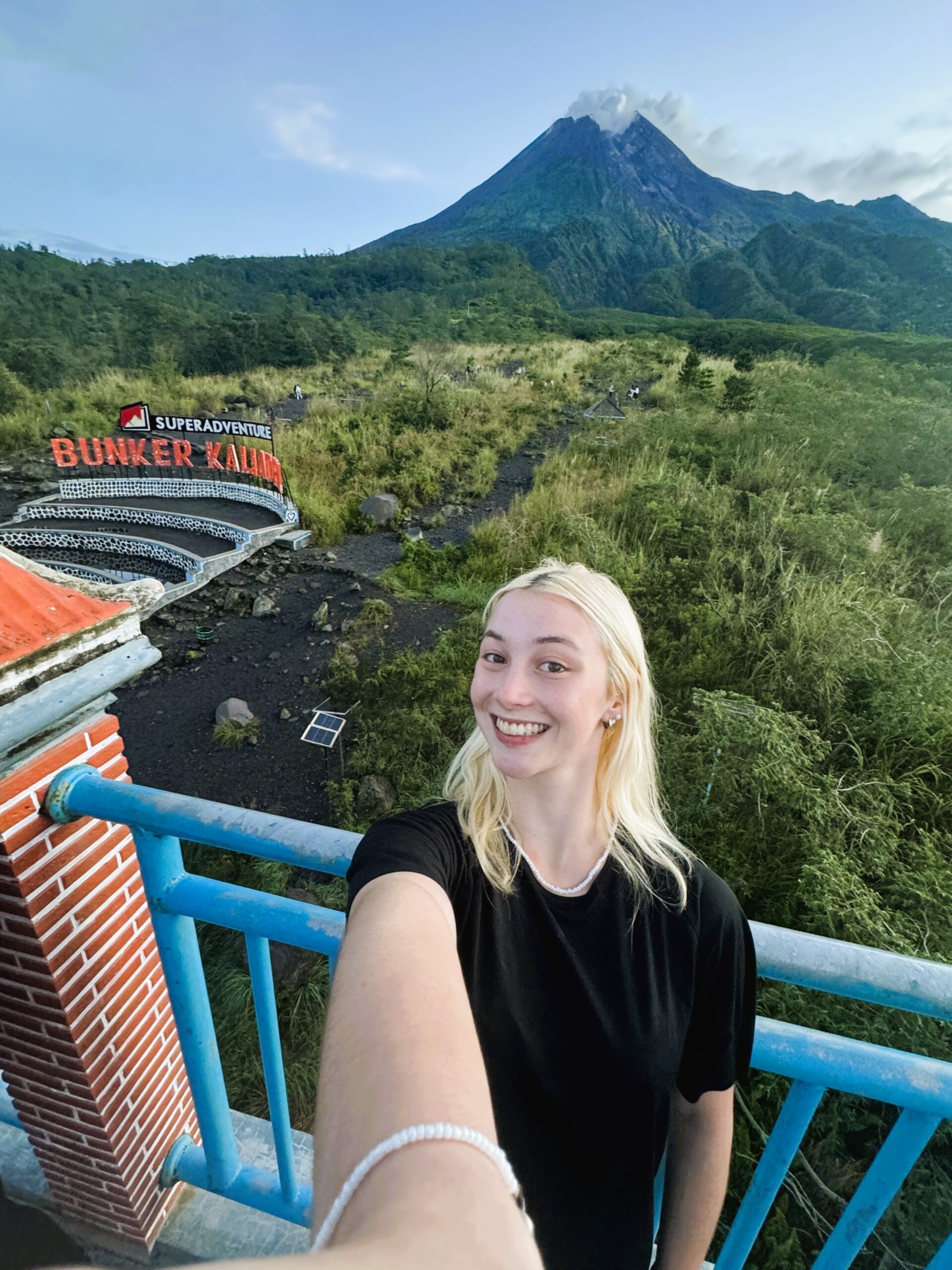Finlay Foster was a participant of the Law Professional Practicum (LPP), in 2025. Finlay is studying at Murdoch University.
Q: Why did you decide to undertake the Acicis internship program?
During a scholarship summit, a law undergraduate who had just returned from doing a program in Cambodia gave an inspiring speech. During the Cambodia program, he had a role in assisting the UN during the Khmer Rouge tribunal. He spoke about the program with such fondness that I quickly looked for my opportunity to participate in an international law opportunity.
Q: Did you receive a New Colombo Plan Mobility Grant? Do you think the NCP is an important initiative? If yes, why?
Yes, I received the plan. I wouldn’t have completed LPP without it because it would have been too expensive. Without a plan like New Colombo, students would struggle to find the motivation to complete essential programs like this because we students aren’t usually the most financially comfortable. The Indo-Pacific region is so close but culturally so far from Australia that I think it is super important that we expand our knowledge of the region firsthand.
Q: Where did you live in Indonesia (Kos, homestay, hotel, rental etc.)? Any tips for prospective students on finding accommodation?
I lived in an apartment next to Atma Jaya and it was the best. The Newton 1/Citadines is one building in which quite a few of us lived. It had a gym, pool, Netflix, and washing service. I have two main pieces of advice.
1. If you want to live alone and are not open to roommates, it is okay to book ahead if you are feeling nervous. However, if you like the idea of sharing it with other Acicis students, I will wait until you are in Jakarta. I sometimes saw others around my building, and it was comforting to see them each day.
2. If you are a light sleeper, I would check to see if a Mosque is nearby before booking. Prayer is very early in the morning and at night, and it is usually through a speaker, so it disrupts a regular sleep routine. Many of my Acicis friends discovered that a Mosque speaker was near their window or right next door, and it would wake them up each day.
Q: How have you found the academic components of this program – i.e. the language classes/seminars?
The seminars are delivered by brilliant people. Each one is unique and invites a lot of discussion. They are nothing like a normal class in Australia. They are fast and dense and challenge you to debate.
Depending on your teacher, the language class is a different experience. My class was a room to be free with your language exploration and get a little silly. An encouraging class is perfect for feeling comfortable trying these new words out loud. Before leaving, do a few lessons in Duolingo to get the basics, which will help you pick up the language much quicker.
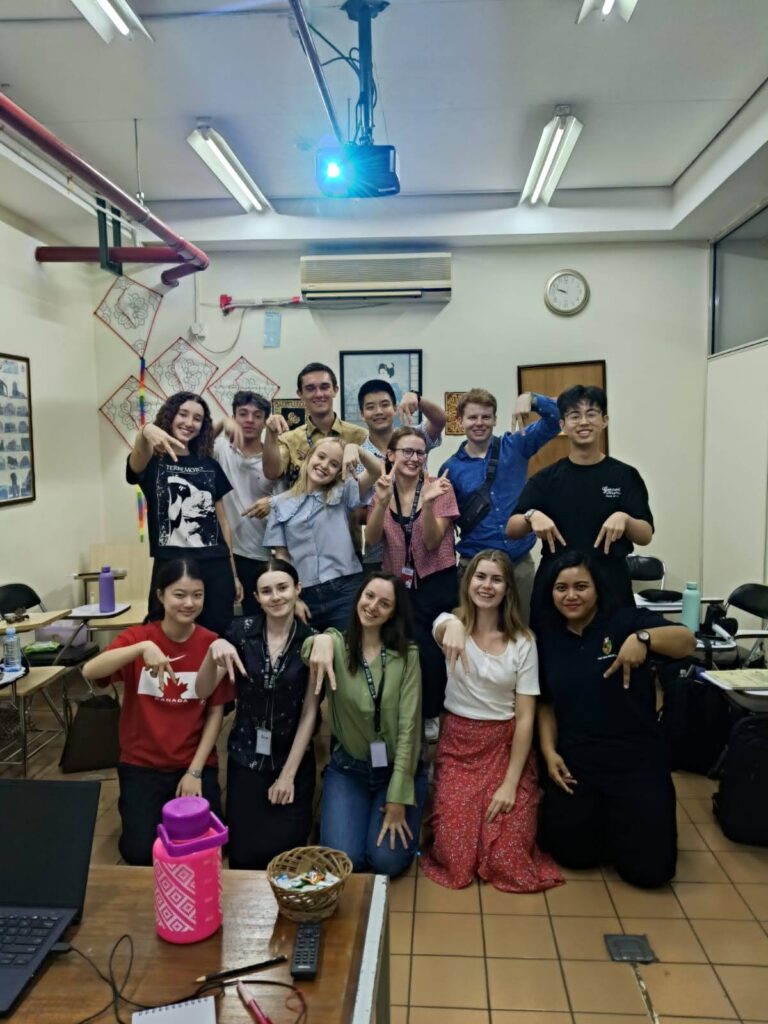
Q: What organisation are you interning with? (Explain your role and responsibilities)
I interned at AYMP Atelier of Law. This is a prestigious law firm located near Atma Jaya which usually handles corporate and banking cases. As an intern, I had to write an essay report comparing Australian and Indonesian private company law, present my findings to the associates and attend education meetings on specific topics such as employment law. I was fortunate to get a few invitations to attend Indonesian court with an associate.
Q: How have you found the work culture of your host organisation? How is it different to work experience in Australia?
The workplace was very inviting and luxurious. We were fortunately given breakfast on Monday, Wednesday, and Friday as well as Lunch on Tuesday and Friday. This is when we Acicis interns would sit and chat with the local interns to learn about workplace culture, expectations, and partners. Everyone in our office usually worked long hours at their desk but kept a super positive attitude. It is hard to compare the places I have worked in Australia to AYMP since they are so different. However, in AYMP and Indonesia as a whole, it felt like there was less of a boundary between professional and private lives. I made closer friendships with many people at AYMP and Atma Jaya compared to the two years at my current Australian workplace.
Q: What are the main skills you have learnt during your internship?
A lot of what I learned in Indonesia was about etiquette and culture. I have never engaged much with Muslim culture, so Indonesia was utterly different. The workplace and court had many layers of respect and norms that were difficult to grasp at first glance, but observing other local interns helped.
I also improved my unscripted presentation skills a lot. I have always been very hesitant to deliver presentations, and during our four weeks, I had many chances to work on this insecurity. In the first week, we Acicis interns shared daily presentations on particular topics, which acted as suitable practice for our final presentation.
Q: What did you find to be the most rewarding part of this experience?
Everything was spectacularly inciteful and inspiring; however, spending time doing independent research as part of the final report is what has stuck with me. If you choose a topic like human rights, with every book and journal article you find, it’s like lifting the stone fully prepared to see the snake. Discovering the robust ways in which history has constructed a country’s current situation is eye-opening. As time passed, the barrier between me and the truthful situation disappeared. As I travelled around cities, I found protests, victims and academics asking for change.
Q: Were you able to learn about the Indonesian culture from this program? If yes, how was this achieved?
You can’t spend a day in Jakarta without being completely immersed in their culture. The cultural programs at Atma Jaya also helped with this as we learnt about artistic and cultural expression. The primary way I learn about the culture was just by observing. In the workplace, you would have to be very conscious of prayer times as people would be unavailable for a while. I took way too long to do proper greetings, and I am regretful I didn’t arrive in the country knowing them all. I would definitely research what to say and do with your hands before landing in Jakarta.
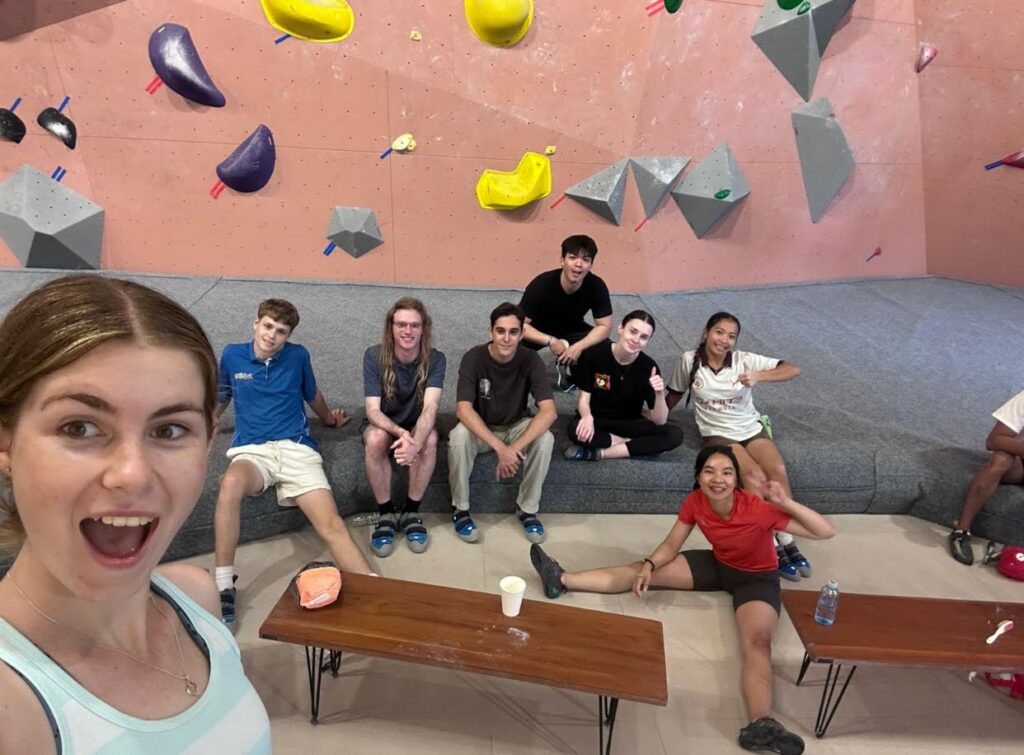
Q: How will the internship benefit or influence your future career?
I will not be directly heading down the legal career path, so this internship has rather indirect benefits. It helped me drastically improve one of my weakest skills and was a great way to boost overall confidence as you were forced to face trials that normal life does not offer. Being a more versed person who has experienced different cultures and lifestyles helps build perspective and helps you as a problem solver in the future.
Q: Would you recommend this program to your friends?
I would absolutely! If they are super engaged in one of the areas the program caters for, they must try this experience. I genuinely believe Jakarta is the perfect city to do so. It is friendly for a student’s budget and offers a polar opposite environment to Australia.
Q: Favourite Indonesian word/phrase:
Benar!
Q: What did you get up to in your free-time? i.e. in the evenings and on weekends.
Jakarta is alive all night and day so it easy to get swept away in the magic and get no sleep. Inside Jakarta I would suggest live music, it is everywhere so you don’t have to look too hard. Jakarta obviously has some of the world’s best malls, so a few days to explore each one is recommended. Other activities in the city include pottery, the aquarium, Monas and any museum or art gallery. If you plan to leave Jakarta on the weekend, I suggest Tidung Island and Bandung. If you do travel to these locations, I would certainly recommend booking a guided tour.
Q: What surprised you about Indonesia? Any new insights?
Indonesia was entirely a surprise to me. I came into this trip knowing basically nothing about Jakarta, so I was amazed by everything. I thought it was going to be much hotter than it was since I was imagining Singaporean weather, but it was much wetter and cooler. Otherwise, the only other huge surprise to me was the prices. Each workday I was usually only spending $10, which included Gojek to work, breakfast, lunch, dinner, and a fun drink from a local cafe.
